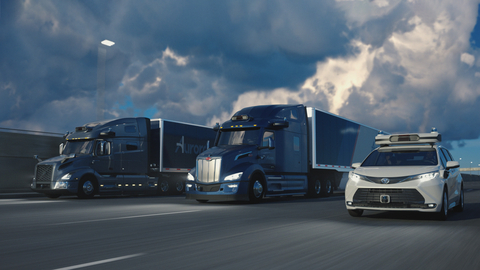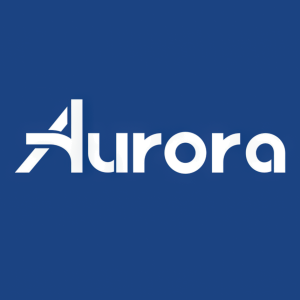Aurora Outlines Product Milestones on Path to Commercial Launch
Aurora (NASDAQ: AUR) plans to launch the Aurora Driver Beta 2.0 by Q1 2022, featuring the first test fleet of Aurora Driver-powered Toyota Siennas for ride-hailing and advanced autonomous trucks. In Q3 2022, the company aims to demonstrate its fail-safe capabilities, a crucial milestone for its Safety Case Framework. Aurora's technology emphasizes commercial relevance and aims for a large-scale rollout of self-driving vehicles by late 2023 for trucking and late 2024 for ride-hailing, positioning itself as a leader in the autonomous transportation market.
- Launch of Aurora Driver Beta 2.0 expected in Q1 2022.
- First test fleet to include Aurora Driver-powered Toyota Siennas.
- Plans for a large-scale commercial launch of autonomous vehicles by 2023-2024.
- None.
Insights
Analyzing...
At the end of Q1 2022, Aurora expects to launch Aurora Driver Beta 2.0 with first test fleet of
In Q3 of 2022, Aurora plans to demonstrate fail-safe capabilities, a critical step towards satisfying a core principle of its Safety Case Framework

(Photo: Aurora)
The Aurora Driver uniquely features Aurora’s common core of technology which includes hardware, software, infrastructure, and development tools that enable Aurora’s technology to integrate with multiple vehicle types, from a Class 8 truck to a passenger sedan. At the end of Q1, the company expects to launch the Aurora Driver Beta 2.0, the next generation of Aurora-Driver-powered trucks. With Aurora’s
Over the next year, quarterly releases will include updates that refine the Aurora Driver’s ability to operate on highways and on surrounding surface streets on both platforms. Each Beta release will represent progress towards a complete, commercially-viable product, increasing the expanse and maturity necessary to deliver a scalable
Aurora Measures Technical Progress with Expanse and Maturity
Aurora's product roadmap is designed to deliver the Aurora Driver at a large commercial scale. With each product release, Aurora will deliver an
Aurora Defines Safety with Industry-Leading Safety Case Framework
Aurora believes that building and executing a Safety Case is necessary for any company looking to safely deliver commercial-ready self-driving vehicles without a Vehicle Operator at scale. Aurora’s Safety Case Framework serves as its roadmap for removing Vehicle Operators from
In Q3 of this year, Aurora expects to show that the Aurora Driver can respond to system failures at highway speeds by safely pulling over to the shoulder without Vehicle Operator intervention. This capability is a critical milestone that shows the maturity of the Aurora Driver and Aurora’s progress towards satisfying the Fail-Safe core claim of its Safety Case Framework.
Looking Ahead: Delivering at Scale
Aurora is working toward the launch of its trucking business in late 2023 and its ride-hailing business in late 2024. “The
About Aurora
Aurora (Nasdaq: AUR) is delivering the benefits of self-driving technology safely, quickly, and broadly. Founded in 2017 by experts in the self-driving industry, Aurora is revolutionizing transportation – making it safer, increasingly accessible, and more reliable and efficient than ever before. Its flagship product, the Aurora Driver, is a platform that brings together software, hardware, and data services, to autonomously operate passenger vehicles, light commercial vehicles, and heavy-duty trucks. Aurora is partnered with industry leaders across the transportation ecosystem including
Cautionary Statement Regarding Forward-Looking Statements
This Press Release contains certain forward-looking statements within the meaning of the federal securities laws. All statements contained in this press release that do not relate to matters of historical fact should be considered forward-looking statements, including but not limited, to those statements around our ability to achieve certain milestones around and commercialize the Aurora Driver on the timeframe we expect or at all. These statements are based on management’s current assumptions and are neither promises nor guarantees, but involve known and unknown risks, uncertainties and other important factors that may cause our actual results, performance or achievements to be materially different from any future results, performance or achievements expressed or implied by the forward-looking statements. For factors that could cause actual results to differ materially from the forward-looking statements in this press release, please see the risks and uncertainties identified under the heading “Risk Factors” section of the definitive Registration Statement of
Aurora Overview
View source version on businesswire.com: https://www.businesswire.com/news/home/20220119005388/en/
Investor Relations:
ir@aurora.tech
(323) 610-0847
Media:
Khobi Brooklyn
press@aurora.tech
(415) 699-3657
Source: Aurora







